The March of Reform: What's Going on with Staffordshire County Council?
An MP and councillors share their opinion on why the party swept up so many seats at the local elections and their thoughts on the future of politics in the county…
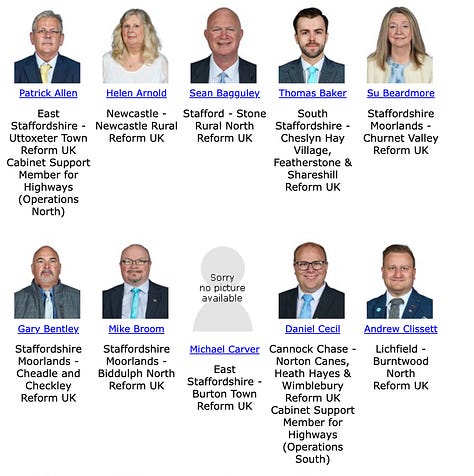
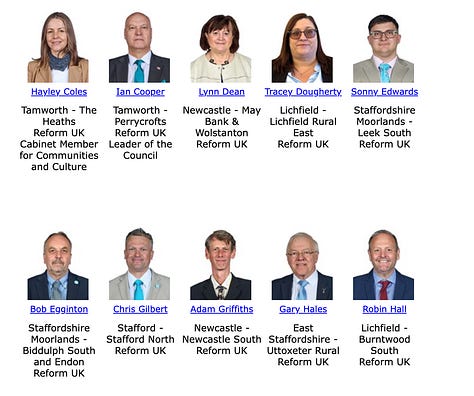
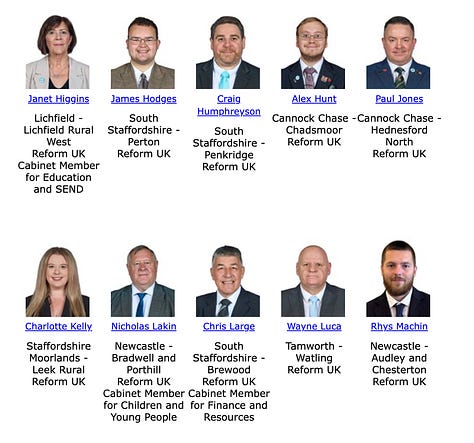
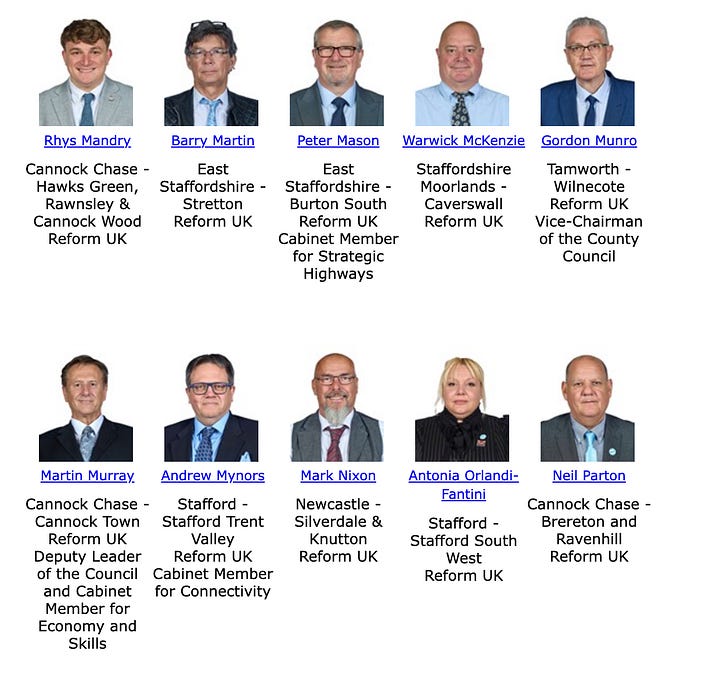
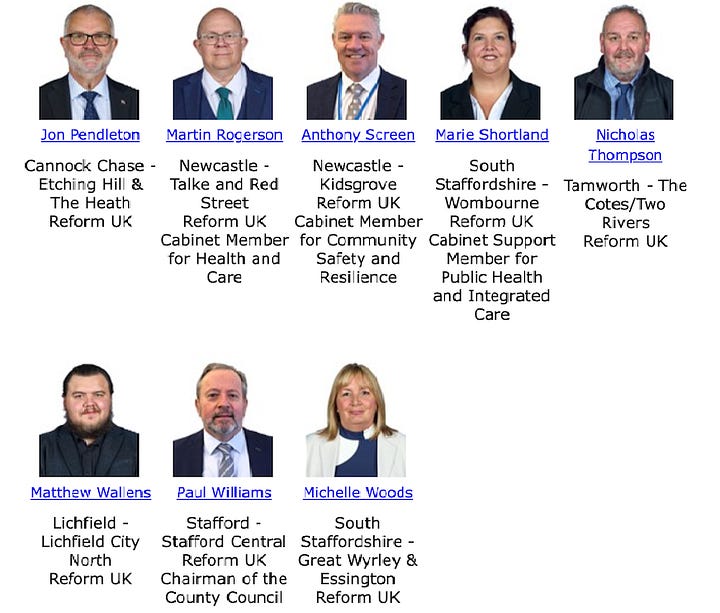
To say that something seismic happened in Staffordshire politics on May 1, 2025 would be an understatement, as, come local elections, voters flocked to polling stations to voice their anger at a Labour government over issues including welfare reforms and the pensioner’s fuel allowance and voted in their droves for Reform councillors in every corner of the county. It was a trend reflected nationally, as communities up and down the country turned away from the two major parties to give Nigel Farage’s party 41% of the vote, and 677 new Reform councillors were elected.
Politics professors Colin Rallings and Michael Thrasher estimated that Reform would have won the majority of seats if the elections had taken place in every part of the country, winning an estimated 32% of the vote. Labour would have come second, with 19% – down from 34% in 2024.
One of Reform’s newly-elected cohort here in Staffordshire is Barlaston resident Sean Bagguley, councillor for Stone Rural North, who took 35% of the vote in the area. Asked what he sees as the major concerns for us as a county, he admits that the ‘headline stuff’ is the roads and the potholes. “That's always going to be top of the agenda, as it’s something everyone in the community sees, and there has been a decline in the roads,” he feels. Speed limits are another concern and, along with Labour MP for Stoke South Allison Gardner and borough councillor Alec Sandiford, he’s involved in the Hilderstone Road Speed Campaign to bring the speed limit down from 60 to 40mph among other road safety campaigns. Overall, however, he believes Staffordshire County Council is in a ‘good place’, and points out that ‘lots of county councils are in a far worse state’.
One of Reform’s most prominent promises is, of course, to “freeze immigration and stop the boats.” While this may have been an issue when parties were knocking on doors leading up to the election, Bagguley says that, at a local government level, “there’s nothing we can do about the boats, and the illegal immigrants coming across the water. But we will be looking into contracts that the council has with accommodation [for illegal immigrants], and we owe it to our community to do so.”
While you may imagine it might be frustrating for Bagguley that he can’t do more to address immigration at a local level – he’s concerned that people who arrive here illegally aren’t putting anything back into the county – he believes national politics should be put to one side. “I’m not into right wing or left wing – it really annoys hell out of me – but what's best for the community and our families. We need to ensure all our money – tax payers money – is used for services we are meant to be providing.”
“It would be silly not to take on others’ views just because they’re from a different political party” - Sean Bagguley, Reform
Adopting an Elon Musk DOGE-style cost saving approach to council spending has been another Reform headline-grabber, and as chairman of the council’s Economy, Infrastructure and Communities Overview and Scrutiny Committee, Bagguley is in the thick of it, stressing that he and other council members have been going through the council’s finances ‘with a fine-tooth comb’. While he admits that there are certain statutory requirements they must meet for adult social care and education, he believes that Reform can save the council money, and cites Kent County Council (KCC), which has a Department for Local Government Efficiency (DOLGE), as an example of how councils can make cutbacks.
While Bagguley says they’re not sure where money can be saved just yet, the leader of KCC, Linden Kemkaran, recently announced plans to discard the Net Zero Renewable Energy Programme and Net Zero plan to transition the KCC vehicle fleet to all electric vehicles. As for cash for Diversity, Equality and Inclusion, Bagguley says, “I believe in a meritocracy, and the best people for the job are employed; it doesn’t matter about your gender or ethnic background. People shouldn't be selected to fill a quota… DEI can create divisions rather than solve the problem. Inclusivity means solving that for everyone,” he believes.
With the momentum well and truly in their favour, the Reform party now has a mandate to push things forward, Bagguley feels. “We’ll work full-on to repay the faith that electors have placed in us. We have got a majority [on the council], so that makes things easier. While we’re keen to push things through, we don't want to be naive and ignore non-Reform councillors; everyone has good ideas, and we’re not blinkered and are willing to listen; it would be silly not to take on others’ views just because they’re from a different political party.”
It would be fair to say that Labour received something of a wake-up call in the local elections, with many councillors in Staffordshire – as well as Stoke, Newcastle and Staffordshire Moorlands – losing their seats to Reform. Asked what she attributes the success of Farage’s party to, Labour MP for Stoke-on-Trent South, Allison Gardner, says that the local elections came at a time when Labour had to make some tough calls. “I understand that some people felt unsure about the changes we're putting forward. But we’ve inherited a country in a deep mess after 14 years of Conservative failure – services stretched thin, communities left behind, and trust badly damaged. The decisions we’re making now aren’t easy, but they’re necessary if we want to rebuild and get things back on track for the long term.”
Asked what she feels are constituents’ biggest concerns right now in Stoke South, she says, “I regularly hear about three big concerns: special educational needs and disabilities (SEND), the ceramics industry, and welfare. In the more rural villages, people also talk to me about road safety and poor transport links.”
Gardner acknowledges that the government’s proposed changes to universal credit and personal independent payments would affect many of her constituents, and she was one of more than 100 MPs who voted against the Welfare Reform Bill. “I’ve held roundtable discussions with disabled constituents and disability support groups and held an online survey for constituents. This feedback will be relayed back to the government to identify how best we can support those who rely on critical support.”
“The decisions we’re making now aren’t easy, but they’re necessary if we want to rebuild and get things back on track for the long term” - Allison Gardner, Labour
Gardner agrees with Bagguely that, in rural parts of the constituency, road safety is one of the biggest issues people raise. “I’ve spoken in Parliament about the hard work being done locally to keep our roads safe, but we need more support. I’ve launched a petition calling for a safe crossing on the A34 in Tittensor – people need to be able to get to the bus stop, shop, or village hall without taking their lives in their hands.”
However, one area where you can’t imagine Gardner and Bagguley agreeing is on immigration. “In Swynnerton, I supported the rehoming of Afghan refugees, returning the army base back to its intended use. I’m glad that Afghan refugees have a safe place to call home, as well as getting the army base back.”
With Reform now at the helm, the Labour MP admits to having “serious concerns” about Staffordshire County Council. “Having said that, I’m always willing to work with any party in the interest of constituents, ensuring we see the best results to make improvements in people's lives. I want to make sure that North Staffordshire gets its fair share of expenditure, particularly on road safety in the villages, SEND, and for investment. I will hold them to account to ensure their promises are kept,” she says.
Liberal Democrat councillor Alec Sandiford lost his seat on Staffordshire County Council to Sean Bagguley in May (he got 28%, or 1,172 votes compared to Bagguley’s 1,461, or 35%) but is still a borough councillor and was elected back onto the planning committee. He believes a lot of people were unhappy with the government and used the local elections to voice their frustration. Asked if he’s surprised to see Reform with a majority, he elaborates, “I don’t think anyone expected it, not even Reform. A lot of them in the county council look like rabbits in headlights at meetings, as they have no experience and now they’re in charge of a rather large authority. It’s a bit worrying,” he says, adding that four out of seven council meetings have been cancelled since Reform took power in Staffordshire, something that has angered local Tory councillors too, although Reform argue that council diaries were set last year under the Conservatives’ administration.
Like many local councillors, he sees the biggest problem with local government as a lack of cash: councils spent 42% less on services in 2022-23 than if spending had kept pace with cost and demand pressures since 2010-11, according to new analysis. “Local councils under successive governments have just been underfunded and need more money from central government – you can’t squeeze people any more really. There are shortfalls in areas like SEND and adult social care, and that's only going to get worse with an ageing population.”
Many new Reform administrations across the UK have talked of making cutbacks, DOGE-style, but Sandiford dismisses this as “headline-grabbing jabberwocky” because, “they’re still implementing the Conservative budget from last year when you could easily use your powers as a local authority and say ‘no, we’re going to look at the budget again’ With the Conservatives making savings of £200 million over the past eight years, if there were money to be found, or services to be got rid of, it’s been done.” Many of the current commitments are statutory requirements on adult social care and education and they can’t legally get away from that, he adds.
“The wider picture of local government is that 99.9% of what you do isn’t really political but is more community-led” - Alec Sandiford, Lib Dem
One way that Reform has proposed to save money is by cutting back on funding for net zero and diversity, equality, and inclusion (DEI) initiatives. However, Sandiford says axing workers in climate change policy and DEI would save just 0.0.2% of the council’s budget. “That amounts to about £153,000 a year, which for a budget of £768 million is absolutely nothing. Even the climate change funding of £3.5 million is a drop in the ocean for a budget of nearly £800 million.” He believes Reform can save money by taking more services in-house rather than giving contracts to private companies for thousands a month for adult social care. “More than 80% of all care homes in the county are privately run by companies that are essentially out to make money and profit, but if you have county council-run care homes, or nursing homes, you’re more in control of expenditure.”
Having expressed doubts about Staffs County Council’s current administration, Sandiford is, however, keen to put constituents first. “I’ve got no problems working with Sean or anyone else to get stuff done. The wider picture of local government is that 99.9% of what you do isn’t really political; it’s more community-led, and that suits me to a tee. I don’t think political parties or national issues should really come into it.”
The leader of Newcastle Borough Council and one of the county’s most prominent politicians, Simon Tagg, saw off competition from Reform to retain his seat on Staffordshire County Council for Westlands, Thistleberry & Keele and was the sole survivor among the Tory county councillors in Newcastle. Tagg has reached out to the council leader, Ian Cooper, on several matters: encouraging government investment into the area through devolution; building on successful collaborations to win Town Deal funding for Newcastle and Kidsgrove; scrutinising Serco’s approach to securing accommodation for asylum dispersal; and discussing a shared approach to achieving the full restoration of the landfill site at Walleys Quarry.
He told the Knot, “The two-tier system of borough and county councils working closely together works well in Staffordshire. There are many areas where it’s natural for us to work together, and I’ve had good meetings and conversations with both the leader and deputy leader of the county council to discuss what happens next.”
The Reform-led Staffordshire County Council has now been installed for just under three months, and, as Bagguley told us, it’s been focused on balancing the books. According to the council website, the new administration has kept to its budget of £747 million. Despite the fact that its leader, Nigel Farage, has said doctors are “massively overdiagnosing” children with special educational needs, the new cabinet lead for Education and SEND at Staffordshire County Council, Janet Higgins, has pledged to make the issue a top priority here in Staffordshire, and council leader Cooper agrees. He recently underlined support for SEND children as one of three ‘key asks’ for the Labour government, along with funding for an ageing population and long-term investment in roads.
While Reform currently holds 48 seats – considerably more than the 32 needed for a majority – the party is no doubt discovering that local councils have limited powers, with many decisions still being made by Westminster. With its proposals for unitary authorities, the Labour government is pledging to give local councils more power, that, it argues, will streamline service delivery and decision-making processes. From the county council to city, borough, and district councils, 10 council leaders across Staffs and Stoke are currently working together through the Staffordshire Leaders Board to engage the government on devolution, with detailed proposals set to be submitted by 28 November 2025.
By the time the next election rolls round in three years, however, we could well find ourselves with a new government unless Labour manages to win back the electorate or the other parties experience an uptick in their fortunes: a YouGov poll from 14 July indicates that 27% of voters would vote for Reform if there were a general election tomorrow, with Labour in second on 22%. Bagguley is confident that Farage will be handed the keys to No 10 by Starmer in 2028. “People are looking to Reform and I absolutely believe we can win the next election and form a majority government.”
Sandiford, however, remains sceptical that Reform can deliver. “Farage is a great salesman; when it comes to implementing change, standing up and owning up, however, he just runs away, and has done it time and time again; he’s just an opportunist. I think a lot of these councillors now realise that they’re going to be the fall guys, and are going to mess up. But in the typical British way, there won’t be protest… people will just vote quietly and not vote them in.”



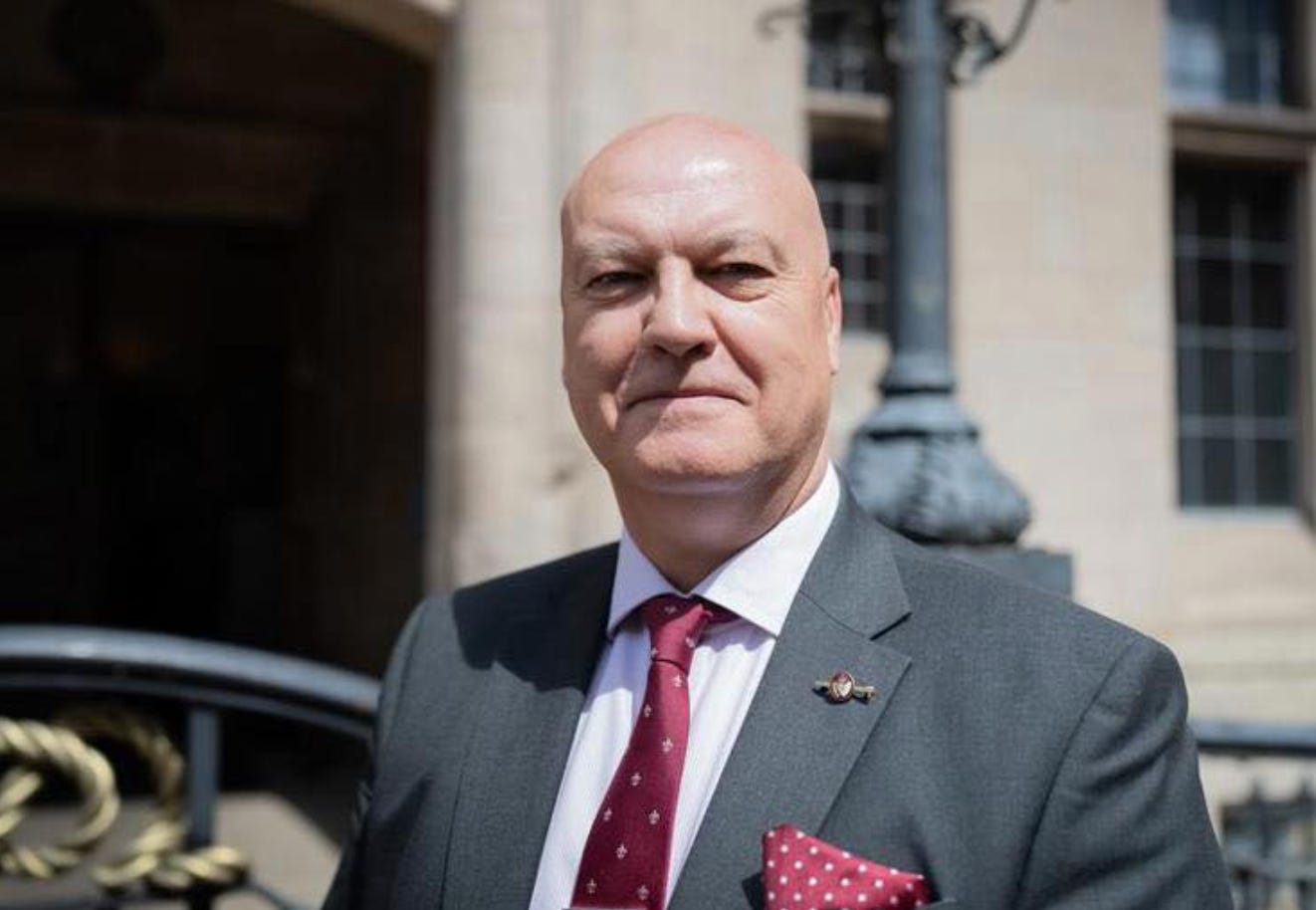

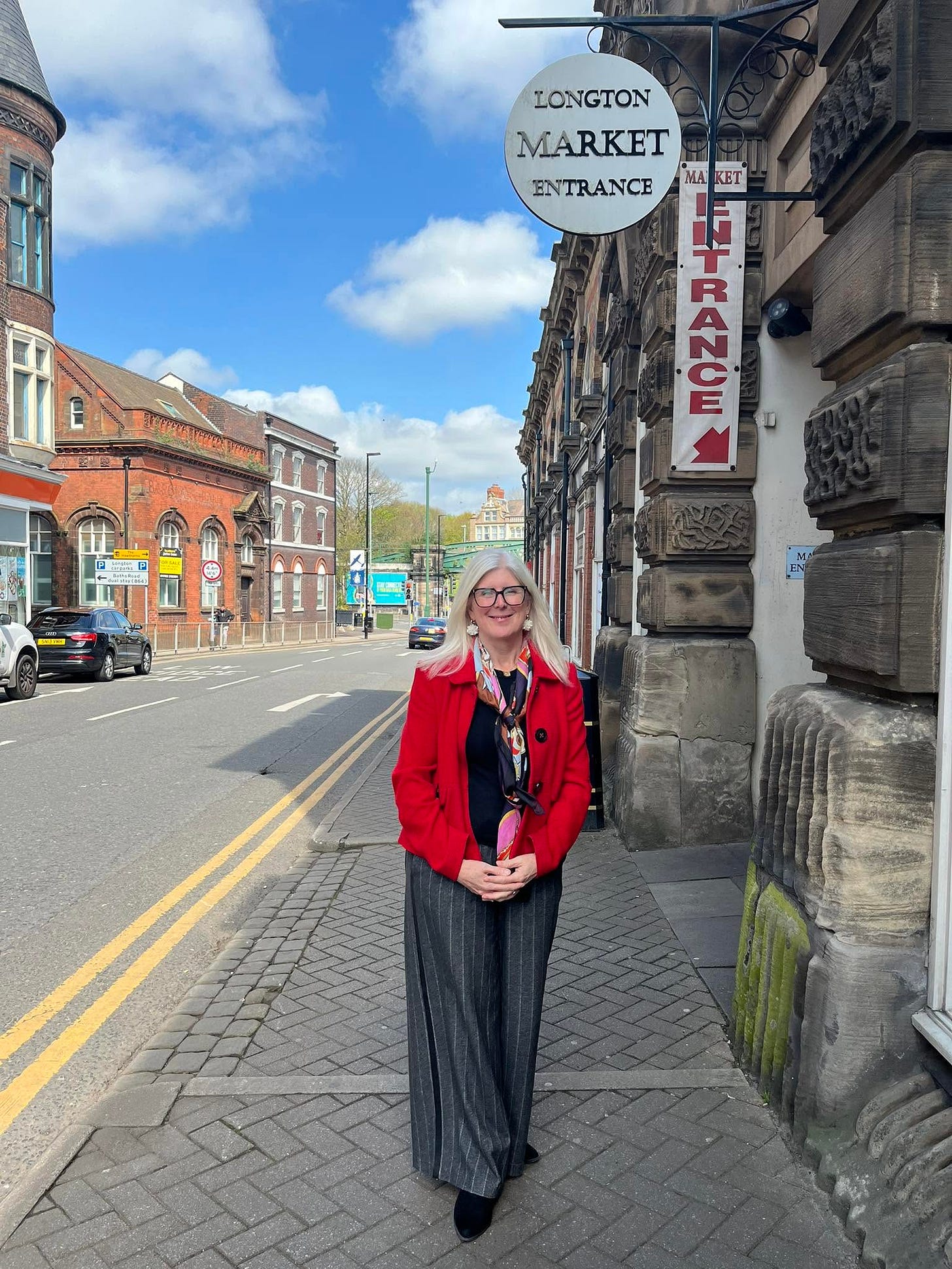

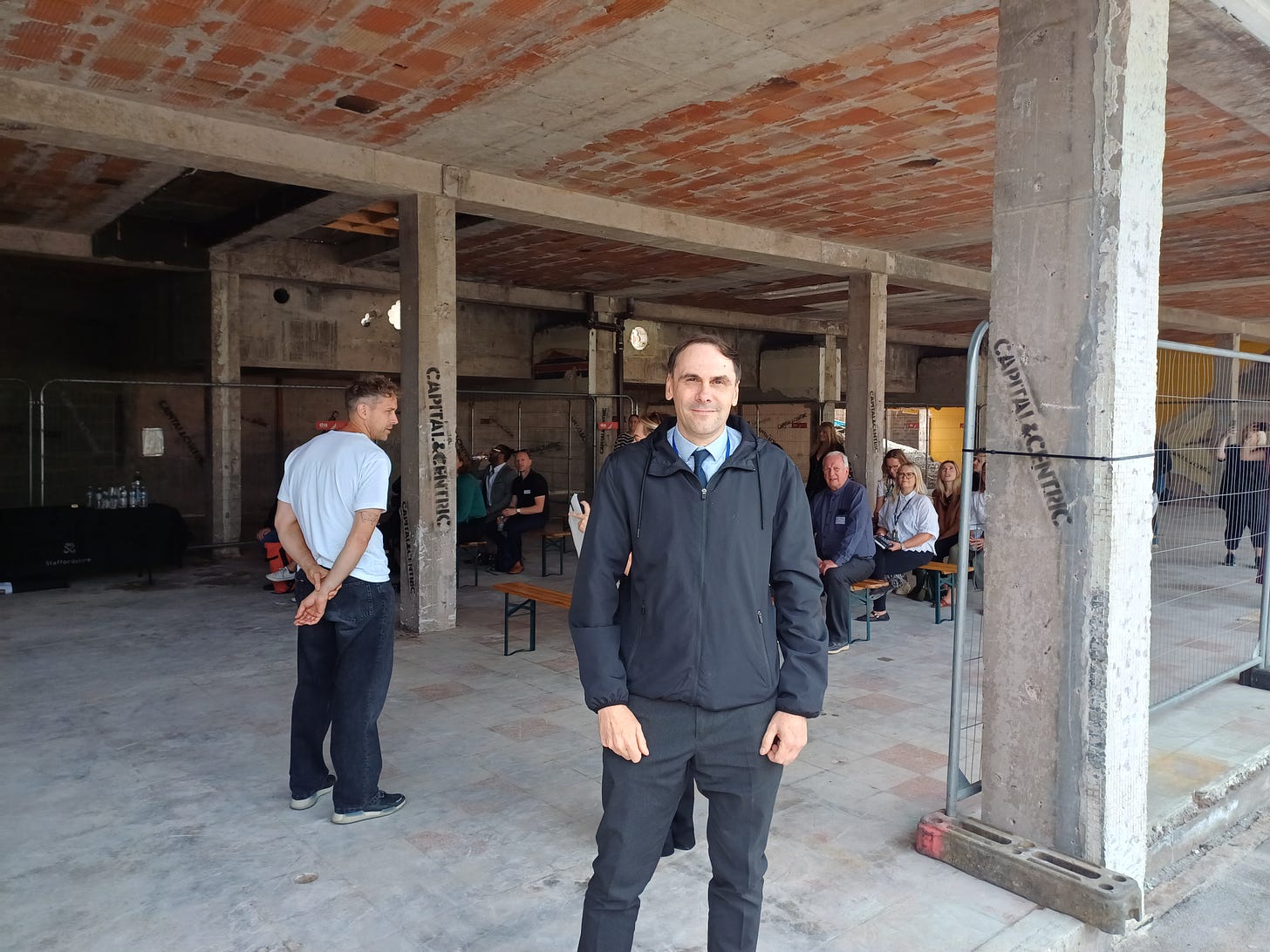
Thanks a lot for this piece. Nicely balanced, informative, and exactly the type of considered reporting of local politics that is so hard to come by. Look forward to similar in the future.